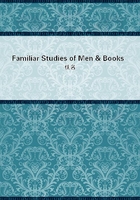
第73章
During his English captivity, that thought was displaced by a more immediate desire for his own liberation. In 1440 a sentiment of gratitude to Philip of Burgundy blinded him to all else, and led him to break with the tradition of his party and his own former life. He was born a great vassal, and he conducted himself like a private gentleman. He began life in a showy and brilliant enough fashion, by the light of a petty personal chivalry. He was not without some tincture of patriotism; but it was resolvable into two parts: a preference for life among his fellow-countrymen, and a barren point of honour. In England, he could comfort himself by the reflection that "he had been taken while loyally doing his devoir," without any misgiving as to his conduct in the previous years, when he had prepared the disaster of Agincourt by wasteful feud. This unconsciousness of the larger interests is perhaps most happily exampled out of his own mouth. When Alencon stood accused of betraying Normandy into the hands of the English, Charles made a speech in his defence, from which I have already quoted more than once.
Alencon, he said, had professed a great love and trust towards him; "yet did he give no great proof thereof, when he sought to betray Normandy; whereby he would have made me lose an estate of 100,000 livres a year, and might have occasioned the destruction of the kingdom and of all us Frenchmen."
These are the words of one, mark you, against whom Gloucester warned the English Council because of his "great subtility and cautelous disposition." It is not hard to excuse the impatience of Louis XI., if such stuff was foisted on him by way of political deliberation.
This incapacity to see things with any greatness, this obscure and narrow view was fundamentally characteristic of the man as well as of the epoch. It is not even so striking in his public life, where he failed, as in his poems, where he notably succeeded. For wherever we might expect a poet to be unintelligent, it certainly would not be in his poetry.
And Charles is unintelligent even there. Of all authors whom a modern may still read and read over again with pleasure, he has perhaps the least to say. His poems seem to bear testimony rather to the fashion of rhyming, which distinguished the age, than to any special vocation in the man himself. Some of them are drawing-room exercises and the rest seem made by habit. Great writers are struck with something in nature or society, with which they become pregnant and longing; they are possessed with an idea, and cannot be at peace until they have put it outside of them in some distinct embodiment. But with Charles literature was an object rather than a mean; he was one who loved bandying words for its own sake; the rigidity of intricate metrical forms stood him in lieu of precise thought; instead of communicating truth, he observed the laws of a game; and when he had no one to challenge at chess or rackets, he made verses in a wager against himself. From the very idleness of the man's mind, and not from intensity of feeling, it happens that all his poems are more or less autobiographical. But they form an autobiography singularly bald and uneventful.
Little is therein recorded beside sentiments. Thoughts, in any true sense, he had none to record. And if we can gather that he had been a prisoner in England, that he had lived in the Orleannese, and that he hunted and went in parties of pleasure, I believe it is about as much definite experience as is to be found in all these five hundred pages of autobiographical verse. Doubtless, we find here and there a complaint on the progress of the infirmities of age.